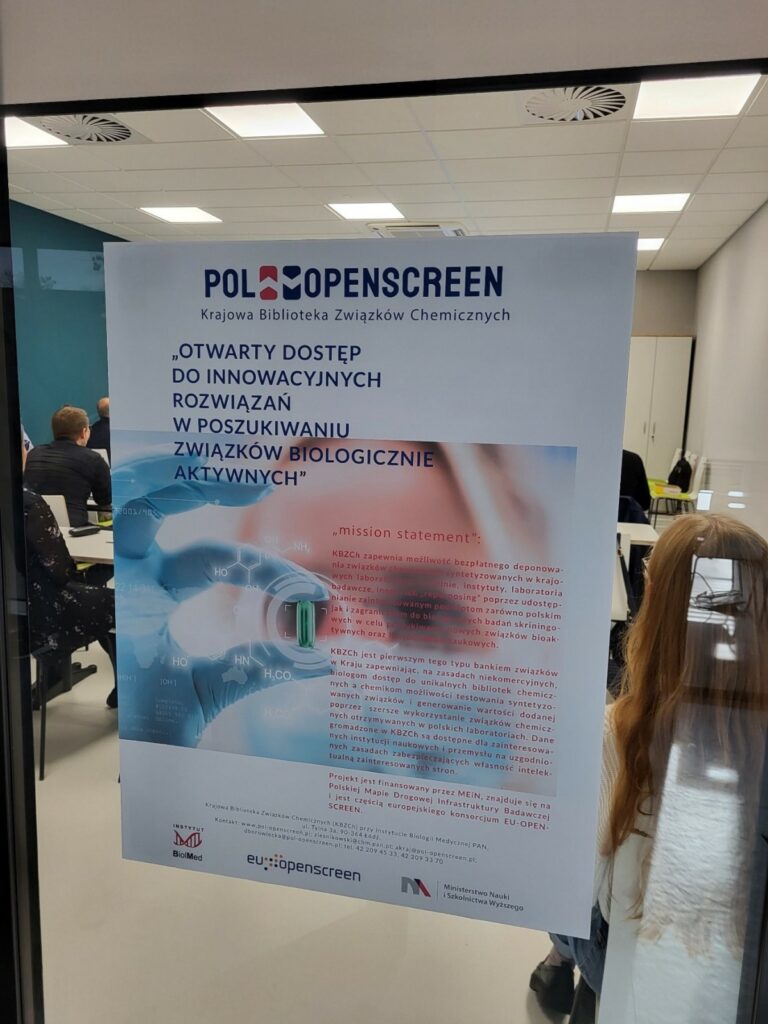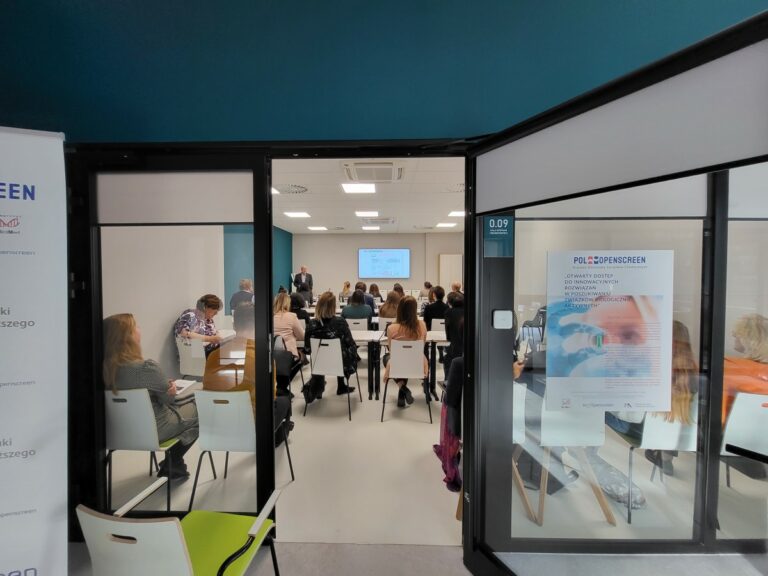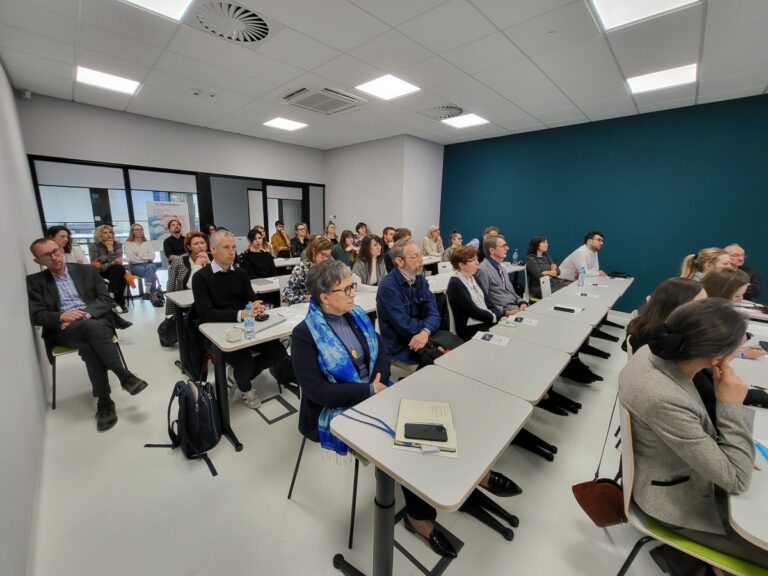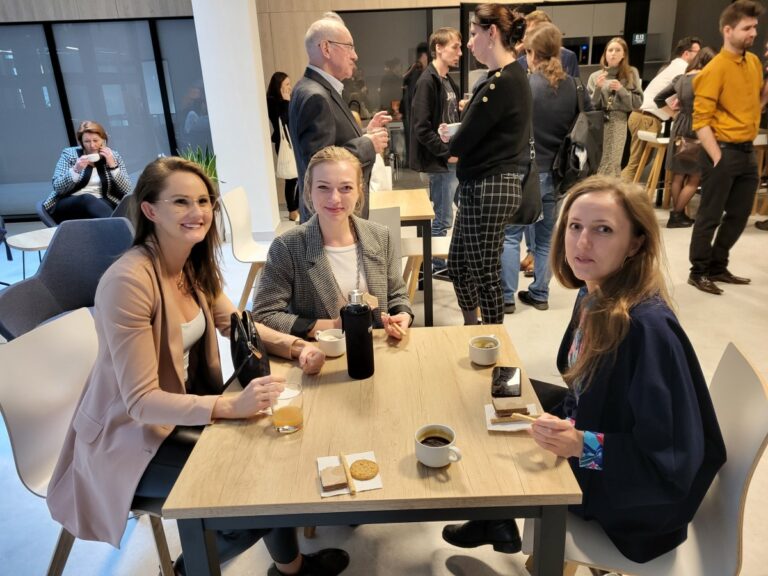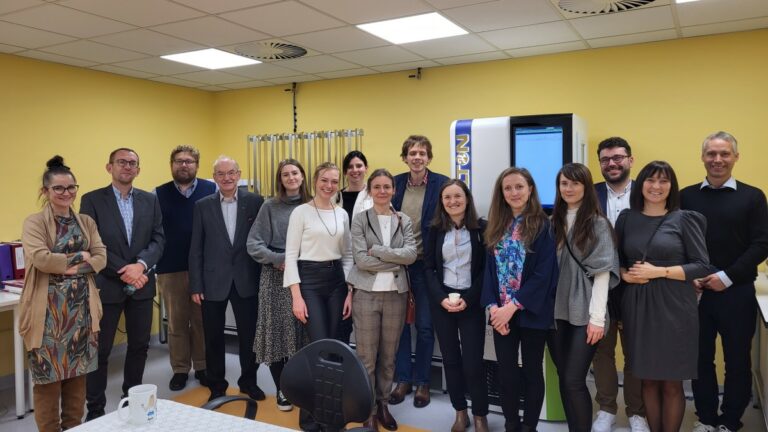2nd Workshop of the National Library of Chemical Compounds POL-OPENSCREEN
The 2nd Workshop of the National Library of Chemical Compounds took place on November 9 and 10, 2022. This time, the co-organizer of the Workshop was the Medical University of Lodz, and the meeting venue was the BRaIn building on the University campus.
The participants of the 2nd POL-OPENSCREEN workshop were chemists, biologists, and pharmacologists interested in the search for new bioactive compounds from the Warsaw University of Technology, Poznan University of Medical Sciences, Gdańsk University of Technology, Wroclaw Medical University, University of Lodz, institutes of the Polish Academy of Sciences and guests. The participants presented their current works on new drugs and bioactive compounds.
In addition, two plenary lectures by invited distinguished Polish researchers were also presented. Prof. dr hab. Tadeusz Robak from the Medical University of Lodz, Department of Hematology, Faculty of Medicine, gave a lecture on “New directions in the treatment of haematopoietic system malignancies”, and Prof. dr hab. Krzysztof Pyrć from the Jagiellonian University, Malopolska Centre of Biotechnology on the topic “Pandemic box?”.
Dr. Bahne Stechmann from EU-OPENSCREEN, the European consortium of which the POL-OPENSCREEN consortium is a part, presented the EU-OPENSCREEN ERIC. For Workshop participants who had not yet had the opportunity to see the NLCC infrastructure, a tour was organized during which NLCC employees presented the NLCC equipment, principles of operation, and rules of using it.
The workshop closed with a discussion on the continuous importance of in vitro and in vivo research of chemical compounds in the era of growing interest in silico research. The importance of the National Library of Chemical Compounds in this context, and the joint contribution to the collection of compounds at NLCC and building the community of users, was also stressed.
NLCC offers free depositing of chemical compounds synthesized in national laboratories (universities, institutes, research laboratories, etc.). The compounds deposited in the Library are bioprofiled free of charge for donors and then made available to interested entities, both Polish and foreign, for biological screening and other scientific research.
